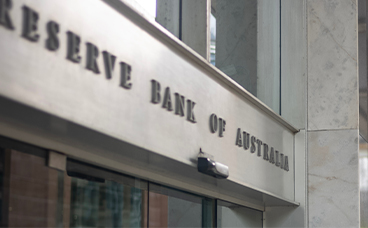Research notes
Stay informed with the most recent market and company research insights.

Research Notes
Q1 provides hope of NIM stabilisation
Westpac Banking Corp
February 19, 2024
The most interesting element of the Q1 trading update was the moderation in the decline of the Core NIM. Reflecting this contributed to a material upgrade to our earnings forecasts. Cash yield at current prices is 5.7% (fully franked). We lift our 12 month target price by 9% to $23.54/sh. HOLD retained.
1H in-line; higher ASP; unusual kids/channel capacity
Cochlear
February 19, 2024
1H was pre-released, with >10% top and bottom line growth and strong OCF. Cochlear Implants (CI units +14%; sales +22% cc) and Services (+29% cc) drove the result, on strong global demand and solid uptake of the Nucleus 8 (N8) sound processor, while Acoustics was down (-9% cc) on lower overall demand. An “abnormal” ASP increase and “unusual” strength in children supported CI growth, most likely due to COVID catch-up surgeries and better audiology capacity. These likely one-offs, along with slowing CI growth, limited GPM expansion and ongoing elevated opex, portend modest near term operating leverage, in our view. We make no changes to FY24-26 estimates or A$290.45 price target. HOLD.
Investor Day
Macquarie Group
February 19, 2024
MQG’s 2024 investor day lowered outlook expectations for the year, mainly on reduced transaction activity in Macquarie Asset Management (MAM) and Macquarie Capital (MC). The investor day itself focused on MQG’s operations in Asia and Banking and Financial Services (BFS - our key points are below). Broadly we see both these areas as having good growth pathways going forward. We downgrade our MQG FY24F/FY25F EPS by ~-7%/-2% respectively on softer deal flow activity. Our target price is set at ~A$189 with our earnings changes offset by a valuation roll-forward. With upside to our valuation reduced, we move MQG to a HOLD call, with the stock trading at fair value, in our view (-21x FY24F EPS).
Defensive attributes and deeper value
New Hope Group
February 19, 2024
We update for 2Q production and trimmed NEWC price forecasts. We think dividend expectations should be moderated at the 1H Result March 19th. NHC’s defensive attributes – cash margins, balance sheet, steady dividends - appear to have supported a recent premium relative to more leveraged peers. Maintain Hold as NHC trades near to fair value. Our forecast 7-8% yield looks like sound compensation as investors await the next upswing.
Good times roll on, but valuation puts us on hold
Goodman Group
February 18, 2024
GMG continued its upgrade trend, with FY24 EPS growth guidance increasing from +9% to +11%, implying what appears to be a conservative sequential decline of 23% (hoh). The 1H24 result beat VA consensus EPS expectations by 13%, with the standout being the development division, supported by a larger proportion of developments being undertaken on balance sheet (higher margin). The business continues to benefit from the structural demand drivers of the digital economy, namely increased investment in technology and tenant’s need to maximise productivity. This has seen data centre projects rise to 37% of WIP. At $28.5/sh, the stock is trading c.1 standard deviation expensive and at a 12 month forward PER of 27x. For a business growing mid to high double digits, the stock isn’t cheap. Offsetting this is the quality: a portfolio of global assets spanning the most attractive subsectors of the real estate market and a management team capable of delivering EPS growth. Weighing this up, we see GMG as a great business and an essential part of any real estate allocation but too expensive to be a buyer at these prices, despite the earnings upside.
Still trending the right way
QBE Insurance Group
February 18, 2024
QBE’s FY23 NPAT (A$1.36bn) was -2% below consensus (A$1.383bn), with FY24 guidance also slightly softer than expected. While headline numbers were marginally weaker than hoped, fundamentally we saw this as a good FY23 result delivering a 16% ROE, and with a very strong balance sheet (PCA capital ratio of 1.82x versus 1.6x-1.8x target). In our view, the QBE investment thesis still remains very much intact, with the company on track to deliver ~25% EPS growth in FY24, whilst trading on a sub 10x PE multiple. This is too cheap in our view. We lower our QBE FY24F/FY25F EPS by ~-2%-3% on slightly softer GWP and margin assumptions. Our PT rises slightly to A$17.96 (previously A$17.56) with our earnings changes offset by a valuation roll-forward.
Painting a picture of growth
Cleanaway Waste Management
February 18, 2024
1H24 delivered the strong EBIT growth required to contribute to management incentive targets in FY26. However, there were headwinds to EPS and cashflow tracking at the same pace. Our target price lifts 14 cps to $2.54, from forecast upgrades (+4 cps) and valuation roll-forward (+10 cps). HOLD retained. At current prices we estimate a 12 month TSR of -3% and a five year IRR of c.7% pa.
A bit soft at the headline level
Insurance Australia Group
February 18, 2024
IAG’s 1H23 NPAT (A$407m) was down -13% on the pcp, and ~-7% below Visible Alpha consensus. While IAG’s headline result numbers were a bit softer than expected, full year guidance was re-affirmed, and IAG does enter 2H24 with its underlying insurance margin (UIM) seemingly already tracking around 15%. We downgrade IAG FY24F/FY25F EPS by -6%/-2% on slightly softer UIM forecasts and higher interest expense. Our PT is set at A$6.17 (previously A$6.32). We believe IAG is now generally tracking in the right direction operationally after a difficult few years, however, with <10% upside to our valuation we maintain our HOLD call.
When expectations are too high
Inghams
February 16, 2024
ING reported the strongest 1H result in its listed life. However, it was the materially softer than expected volume growth in Australia which disappointed following weakness in the ‘out of home’ channels. Management’s outlook commentary was vague as usual and slightly cautious. However, its commentary around the 1H/2H skew is unchanged. Our EBITDA forecasts are therefore unchanged while NPAT falls slightly due to higher tax. Given expectations were high leading into this result following strong share price performance in recent months, the stock was sold off given there was no beat and outlook commentary was mixed. However, we think the stock has been severely oversold. Trading on an FY25F PE of 11.1x and an attractive dividend yield of 6.1% fully franked, we maintain an Add rating.
Elevated costs impact the half
Aust Securities Exchange
February 16, 2024
Despite revenue growth of 2.4% on pcp to ~A$512m, ASX’s 1H24 result was a miss versus market consensus at NPAT (~A$231m, -8% on pcp and ~6% under consensus) on higher total costs than expected (~A$221m, +27% on pcp). We alter our FY24F-FY26F EPS by ~-2-+2% on higher operating expenses near term with an improved margin profile (cost rationalisation) medium-term. Our price target increases to A$62.70 (from A$60.20). Trading on ~26.5x MorgE FY24F PE, slightly above its 10-year average, we still see the elevated expense profile as weighing on the stock near-term. Hold maintained.
News & insights
February 12, 2026
February 12, 2026
min read
Succession Planning in 2026: The ATO, Baby Boomers & the Wealth Transfer Tax
Morgans
Opinion
February 10, 2026
February 10, 2026
min read
Kevin Warsh’s Plan to Lower Rates and the US Dollar Safely
Michael Knox
Chief Economist and Director of Strategy
Michael Knox explains how incoming Federal Reserve Chair nominee Kevin Warsh could lower the fed funds rate and weaken the US dollar without fuelling inflation. Warsh’s experience during the Global Financial Crisis shapes his belief that a long period of quantitative tightening can offset rate cuts and remove the moral hazard created by quantitative easing.
February 4, 2026
February 4, 2026
min read
Why Australia Is Likely Facing More Rate Hikes Than Expected
Michael Knox
Chief Economist and Director of Strategy









